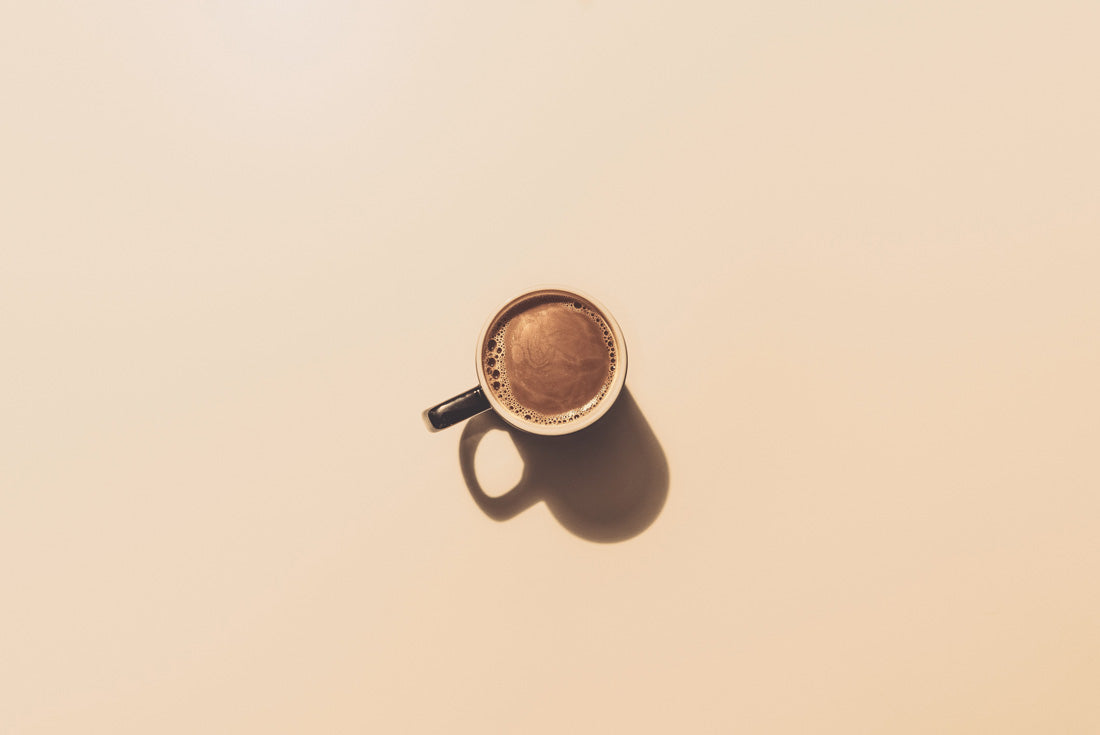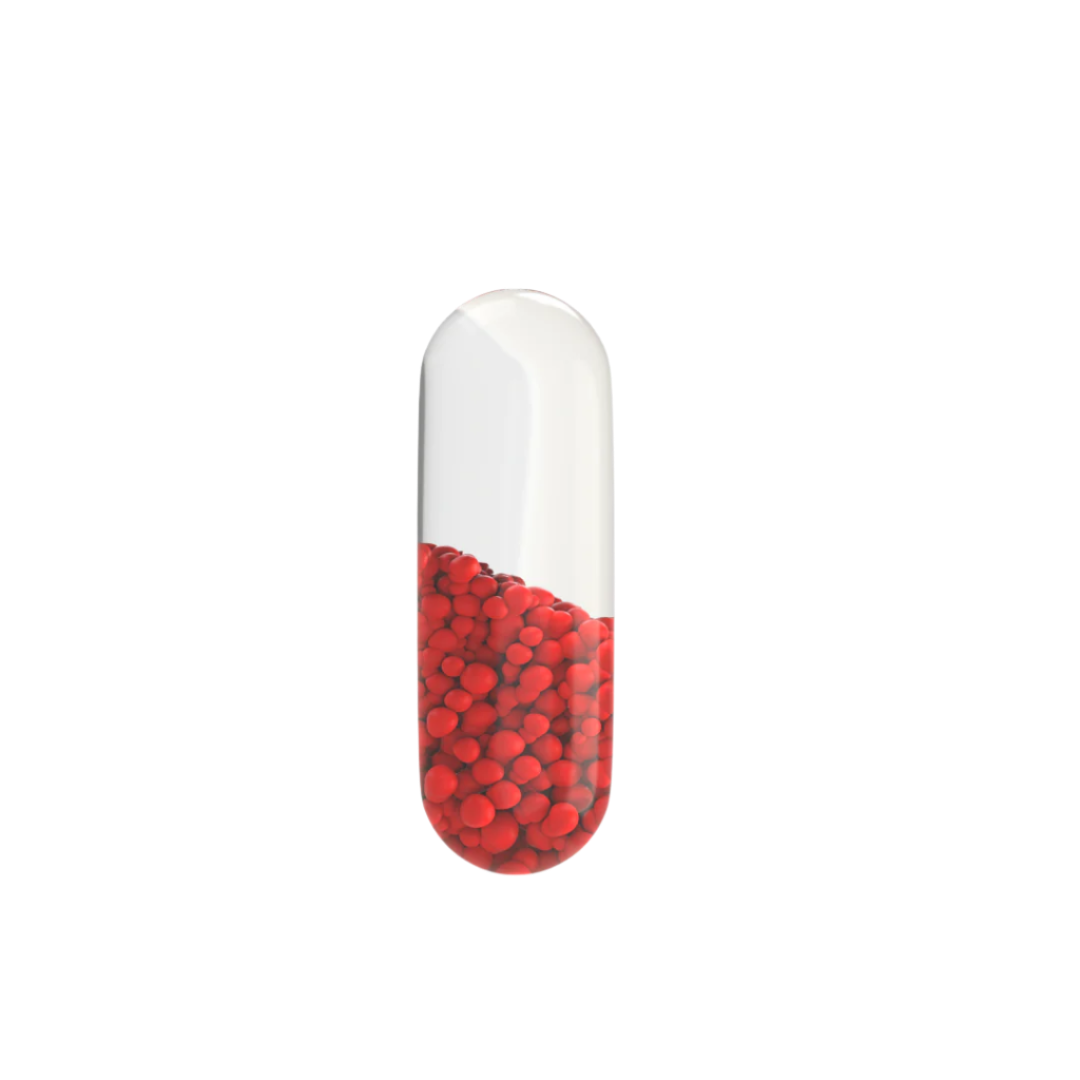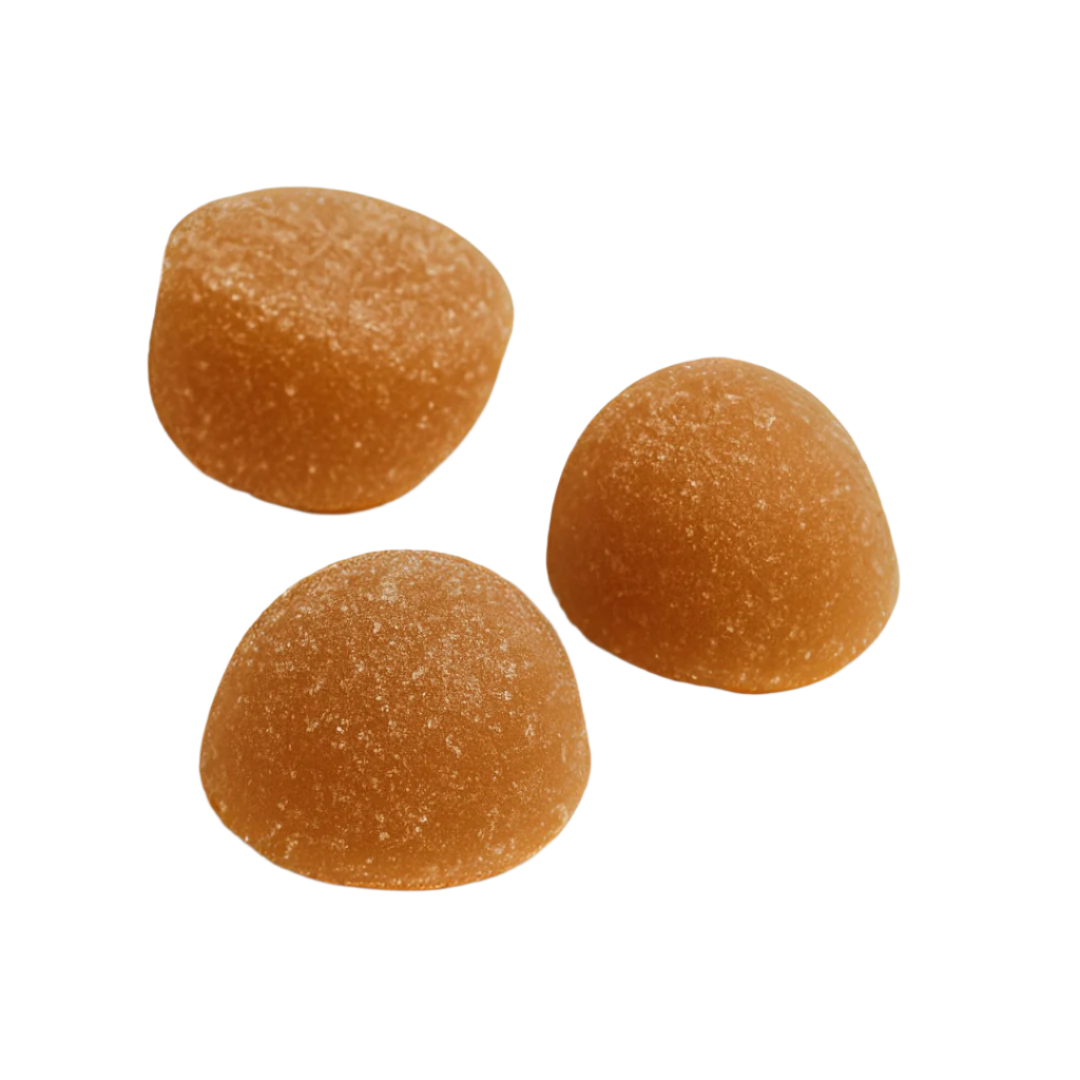6 tricks to start the day without coffee

THE KEY POINTS
- Too much caffeine can cause insomnia and anxiety, so you should try to limit your caffeine consumption as much as possible.
- There are a number of ways to get going without coffee, and consistency is key in all of them. Don't expect instant results.
- It is important that you establish a good routine and create a sleep schedule so that you get your 7 to 9 hours of sleep.
- You can combat morning tiredness with exercise, natural sunlight and a healthy breakfast.
- B・SYNC ON is the first clinically proven nutritional supplement that supports waking up. Start your day fresh and alert – without coffee!
Getting out of bed in the morning can be a challenge. Most of us need an extra incentive to leave the warm nest - especially in the cold season. For most adults, a cup of coffee after getting up is the ultimate feel-good program.
After all, coffee wakes you up almost immediately after the first sip, gets your circulation going and motivates you. However, too much coffee can have the opposite effect and be detrimental to your health. Many people laugh at it, but it is still a serious point: coffee is addictive.

BEAT FATIGUE WITHOUT CAFFEINE
The best thing to do is to try to drink coffee only occasionally. This will prevent you from becoming dependent on caffeine and will keep your body in better shape in the long term. Corti R. et al. claim that coffee can have a negative effect on the nervous system, heart rate and blood pressure [1].
Another nutrition article showed that too much caffeine can cause insomnia, anxiety, headaches, and other unwanted side effects [2]. Insomnia and anxiety can lead to poor sleep and make you reach for coffee again in the morning. According to the National Sleep Foundation, all healthy adults should try to get at least 7 to 9 hours of sleep per day [3].
The EFSA (European Food Safety Authority) advises adults not to consume more than 400 mg of caffeine per day [4]. That is about 4 - 5 normal cups of coffee.
If you're having trouble getting going without coffee in the morning, the following tips should help you. We've come up with a few clever ideas that can help you. Keep in mind that these alternatives may take some time to take full effect, so be patient; you shouldn't expect immediate results here.

HAVE A GOOD BREAKFAST
Breakfast is perhaps the most important meal. Even if you are in a hurry, you should try to eat a little something. If you absolutely cannot manage it, at least take a yogurt with you on the way to work or make yourself a smoothie.
Why is breakfast so important, you ask yourself? While you sleep, your body does not take in any food for a considerable period of time. This causes your blood sugar level to drop. Breakfast, in turn, gets your circulation going and gives your body energy for the day - provided you eat a balanced and healthy diet. It is best not to eat anything at all or to eat a breakfast that is too high in calories. The former saps your energy, the latter makes you unnecessarily sluggish. Another advisable thing is to eat at the same time every day. Over time, your body adapts its biorhythms to your routine.
These foods will cheer you up
It is best to include foods with a low glycemic index in your breakfast repertoire. These include healthy fats and lean protein sources. We recommend a balanced mix of carbohydrates, fruit and protein. Fiber-rich foods can also help you increase your energy levels and keep them constant for a long time. Leafy vegetables are a good addition to breakfast as they increase vitamin B intake. Vitamin B, in turn, is important for energy production in the cells.
To increase your vitamin intake naturally, a glass of freshly squeezed orange juice in the morning can be a great addition to your routine. Orange juice is high in vitamin C and natural sugar. Other fruits such as apples are also a good and healthy way to give you a natural energy boost in the morning.

GET MOVING
Regular exercise can help you reduce fatigue and get you going in the morning. According to the Hopkins Centre, you should ideally exercise for 30 to 40 minutes 3 to 4 days per week [5].
Regular exercise can also help you regulate your circadian rhythm. The circadian rhythm is also known as the internal clock and controls body temperature, heart rate, hormone secretion - and, last but not least, waking and sleeping times. Regular exercise can therefore help combat sleep disorders and improve sleep quality.
This doesn't necessarily have to be an intense workout. If you don't feel like breaking a sweat, a short walk is enough to give you new energy. This releases norepinephrine, a neurotransmitter that scientists at the California Institute of Technology claim makes you more alert and attentive.
Alternatively, yoga is a great idea - preferably in the fresh air. Depending on which style you prefer in the morning, yoga helps to gently wake up and stretch the body. Your body gets better blood flow and your circulation is stimulated. Even running on the spot or doing a few jumping jacks are effective enough to get your circulation going.
It is ideal if you can exercise outdoors. According to the Mayo Clinic, this increases the release of endorphins [6]. Endorphins can relieve pain and stress and make you feel better in general. Try to get about 30 minutes of natural sunlight every day; this also supports your vitality [7] and can help regulate your sleep-wake cycle.
B・SYNC ON AS A FOOD SUPPLEMENT
One of the most innovative methods for a better start to the day and the most natural way to wake up full of energy is B・SYNC ON. B・SYNC ON is the first clinically proven wake-up capsule.
The capsule is taken before going to bed. The active ingredient begins to be released around 7 hours later. The active ingredients wake you up naturally and gently after around 8 hours of sleep. This ensures that you feel refreshed and alert when you wake up.
It is best to take the capsules regularly so that they can have their full effect. If you make them a regular part of your evening routine, you increase the likelihood that you will get enough sleep and feel fresh and alert the next morning as soon as you open your eyes.

DRINK ENOUGH FLUIDS
If you just can't shake off the tiredness, make sure you're drinking enough fluids. Tiredness is a sign that you're dehydrated, so what you think is exhaustion may actually be your body telling you that you need more water. Remember, you haven't had anything to drink for more than 7 hours while you were sleeping.
According to the National Health Service (NHS), you should drink about 6 to 8 glasses of fluids every day; this includes water, low-fat milk and sugar-free drinks. A 2018 study claims that participants with increased water intake had a lower risk of anxiety [8]. Likewise, a 2014 study showed that participants who drank more water at times felt happier - regardless of their usual water intake [9].
If you still feel tired after a refreshing glass of water, take a cold shower and splash cold water on your face. This will invigorate you and put you in a good mood.
GET UP WITH THE SUNRISE
Sleeping with the blinds or curtains open is a clever trick that lets your body wake up naturally. Sleeping with the window open allows natural light to slowly enter your home and gradually wake you up without having to rely on coffee or an alarm clock. Your body's circadian rhythm sees the light as a signal that it's time to get up and gradually prepares your body for it.
Soaking up sunlight during the day will help your body sleep deeper and better in the evening. When the sun rises, your body gradually reduces melatonin production and you wake up.
Of course, this is not always the most practical option, as in summer the sun sets later, meaning you wouldn't always get your 7 to 9 hours of sleep. In winter, the opposite is true. The sun rises late, and you might oversleep. Keep the sunrise and sunset times in mind before sleeping without curtains or blinds.

CREATE A STRICT SLEEP ROUTINE
Getting enough sleep is one of the surest ways to wake up refreshed. Adults should get between 7 and 9 hours of sleep each night. For teenagers, it's between 8 and 10 hours. By setting a schedule, you'll get enough sleep, wake up refreshed, and be able to skip that morning coffee.
We recommend that you keep track of when you sleep and when you wake up for a week. Calculate how many hours of sleep you get per night; if it's less than seven, you should change your sleep pattern. A consistent morning and evening routine will help prepare your body for sleep and the day ahead.
It's important that you stick to this schedule. It may take some time for it to become ingrained and a normal part of your daily routine. Consistency is key. Make sure you get up and go to bed at the same time every day - even on weekends.
Morning routine
Developing a morning routine can signal to your body that it's time to wake up. Even small things can help you wake up. Reading a newspaper or doing a quick puzzle stimulates the brain and banishes tiredness. Other things that can help you wake up are socializing, exercising, or listening to upbeat music.
Evening routine
Just as your morning routine sets your day in motion, an evening routine can help prepare you for sleep. When you sleep well, you feel less tired in the morning. The effectiveness of your morning and evening routines go hand in hand.
Avoid electronic devices in the evening; take a hot bath or drink an herbal tea instead. Avoid blue light, as this suppresses melatonin production and prevents your body from getting tired. Keep your phone out of reach to avoid being tempted to scroll through social media. Avoid potential stress triggers that over-stimulate your brain or fuel anxiety to avoid making it harder to fall asleep.
FINAL THOUGHTS
Caffeine is not bad per se - but it can be addictive [10]. It is better if you avoid it immediately after getting up. In this article we have collected some ideas that can help you start the day fresh and alert without coffee. Find out for yourself which of them suits your lifestyle best.
Remember that with each option it will take time before you see results. Be patient and consistent, no matter which option you choose.
FAQ
How do I wake up without caffeine?
Try to get at least 7 hours of sleep so you wake up feeling fresh and rested. To wake up without coffee, eat a healthy breakfast, do a puzzle or get some exercise in the fresh air to supply your body with oxygen.
Do you really need coffee to wake up?
Caffeine can help you wake up, but it's not the only way. Alternatives to coffee in the morning include healthy foods with a low glycemic index, water and exercise in the fresh air. Nutritional supplements such as B・SYNC ON can also help you wake up.
What should I take instead of caffeine in the morning?
It is best to eat a balanced breakfast. Fruits like apples contain natural sugars that will wake you up. Other good foods to wake you up with are eggs, grapefruit, oatmeal and Greek yogurt.
SOURCES
- https://pubmed.ncbi.nlm.nih.gov/12460875/
- https://www.sciencedirect.com/science/article/abs/pii/S0899900716300454?via%3Dihub
- https://pubmed.ncbi.nlm.nih.gov/29073412/
- https://www.efsa.europa.eu/sites/default/files/corporate_publications/files/efsaexplainscaffeine150527.pdf
- https://www.hopkinsmedicine.org/health/wellness-and-prevention/exercising-for-better-sleep
- https://elifesciences.org/articles/07000
- http://www.mayoclinic.org/healthy-lifestyle/stress-management/in-depth/art-2004446
- https://www.verywellhealth.com/morning-sunlight-exposure-3973908
- https://www.ncbi.nlm.nih.gov/pmc/articles/PMC6147771/
- https://www.ncbi.nlm.nih.gov/pmc/articles/PMC3984246/
- https://www.addictioncenter.com/stimulants/caffeine/







